RHD Non-invasive Prenatal Testing (RHD NIPT)
RHD NIPT is a simple test on your blood that can predict your baby’s RhD blood group.
Maternal blood specimen collected (12-26 weeks gestation)
Specimen sent for processing
From 11 weeks gestation in pregnancy, fetal DNA can be found in the mother’s blood circulation. This can be used to identify fetal blood groups including the RhD blood group.
Do I need to have the RHD NIPT test?
If you are RhD negative with no anti-D antibodies, your clinical care provider will recommend that you have the RHD NIPT test between 12-26 weeks. For more information, please, click on your blood group below.
Select your Rh blood group
I am RhD positive
I am RhD negative
I have clinically significant antibodies, regardless of my RhD blood group
You do not require any RhD Ig or the RHD NIPT test.
You will still need to have another blood test (antibody screen) between 26-28 weeks to make sure you have not developed any other antibodies.
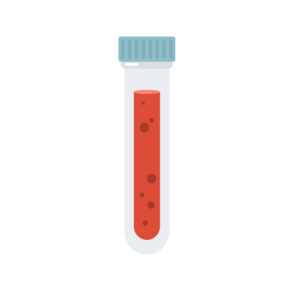
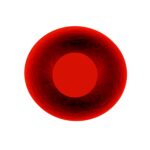
RhD negative red cell
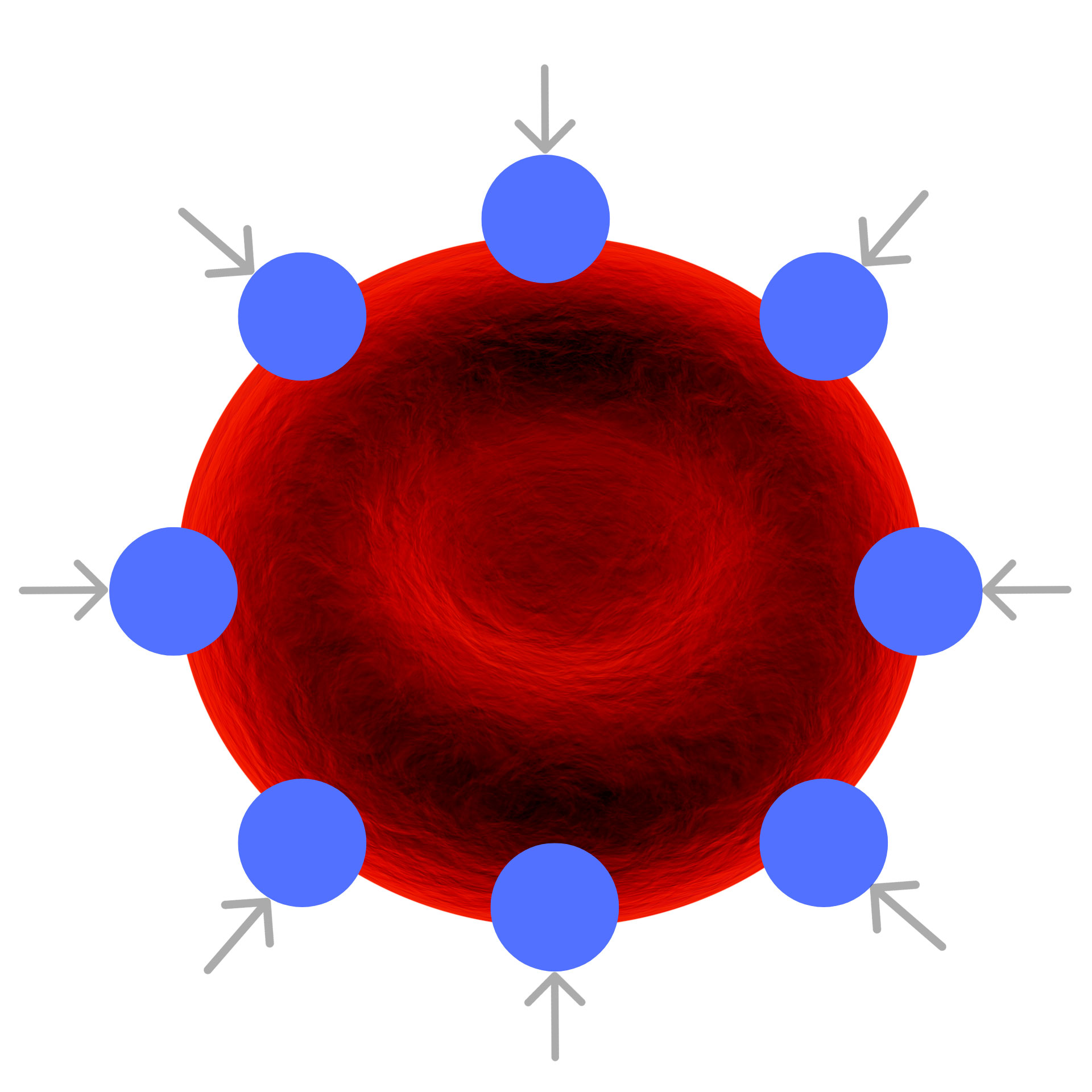
RhD positive red cell with anitgens (→)
If you are RhD negative there are no RhD antigens on your red blood cells.
There are three options for your care from here. For more information select the options below.

Your clinical care provider will order a more specialised type of test called the NIPA test which is provided by the Red Cross Lifeblood. This will determine whether your baby might have red cell antigens that might be important and require monitoring throughout your pregnancy. If you do not have any anti-D antibodies, your clinical care provider may also refer you for RHD NIPT testing to determine whether you may need RhD Ig.
If your baby does have any antigens that might be a problem, your clinical care provider will explain the recommended treatment options that will reduce the risk of harm to your baby.
RhD negative antenatal care options
Decline RHD NIPT and receive RhD Ig prophylaxis
RHD NIPT guided RhD Ig prophylaxis
Decline RHD NIPT and decline RhD Ig prophylaxis
You can decline the RHD NIPT blood test but still receive RhD Ig prophylaxis treatment to prevent the development of anti-D antibodies and HDFN in future pregnancies.
You will need to have RhD Ig injections at 28 and 34 weeks gestation, and again at the birth of your baby if your baby is confirmed to be RhD positive.
You will also need to have RhD Ig for any sensitising events .
If you would like further information on RhD Ig prophylaxis please see the resource below.
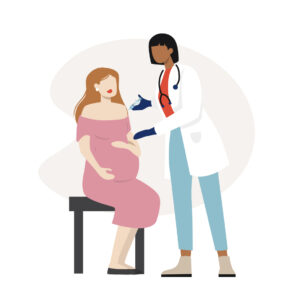

The RHD NIPT test is a simple blood test on your blood between 12-26 weeks gestation to predict the RhD type of your baby. The test only checks the RhD blood group of your baby and cannot check for genetic diseases and chromosomal abnormalities like other NIPT tests. The test is Medicare funded.
Your clinical care provider will recommend you the RHD NIPT test if you are found to have an RhD negative blood group and you have no anti-D antibodies.
You will need to have the test between 12 and 26 weeks, as if it is completed too early it is more likely to give an incorrect result, and if it is completed later the result may not be available in time for the RhD Ig therapy at 28 weeks (it may take up to 10 days until your test results are available).
If you are more than 26 weeks you may still be offered the RHD NIPT test as you may not need to have RhD Ig at 34 weeks gestation or for sensitising events if your baby is predicted to be RhD negative.
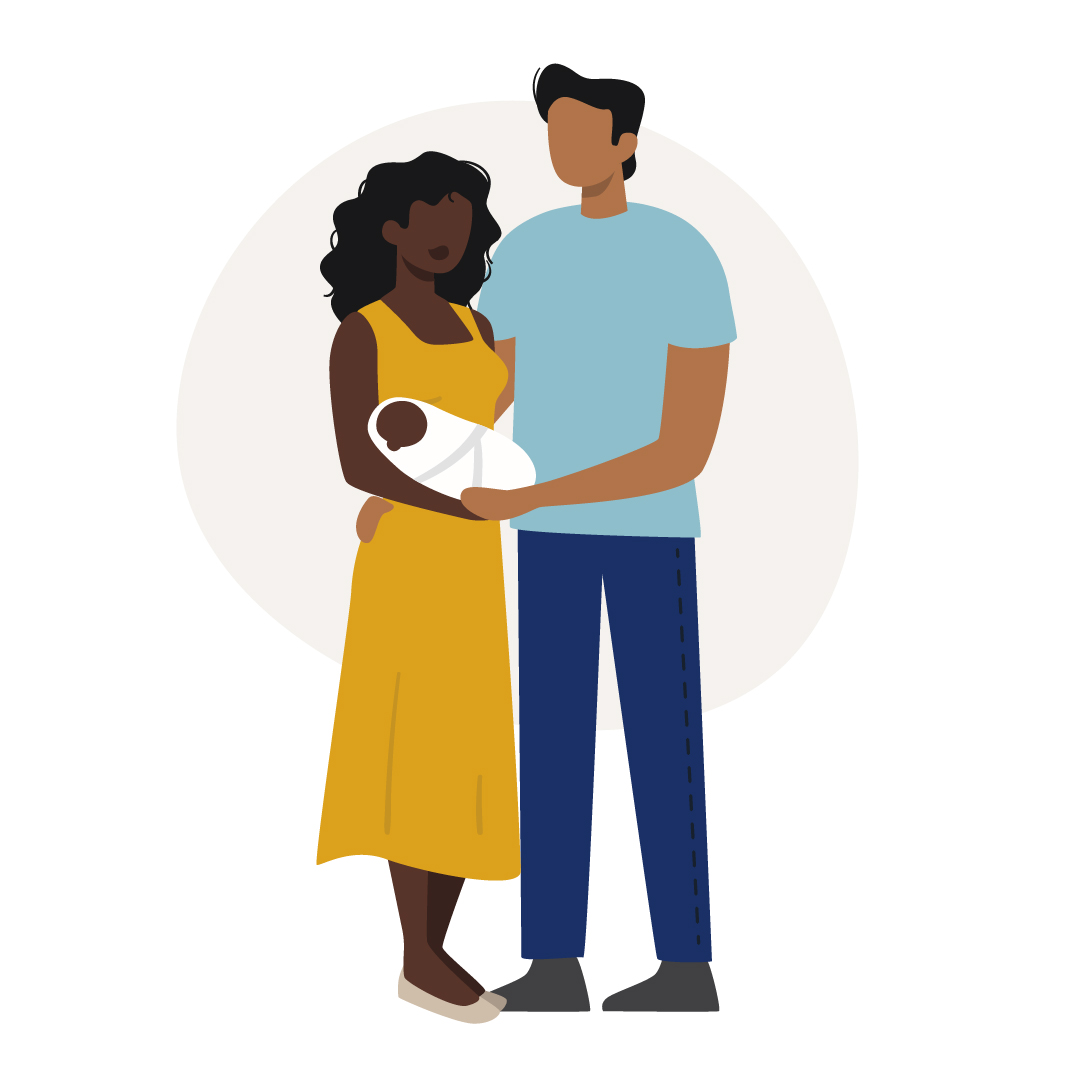
You can choose not to have the recommended RHD NIPT test and RhD Ig prophylaxis as part of your pregnancy care plan. If you choose these options, there is a risk that you may develop anti-D antibodies. This is unlikely to affect your baby for this pregnancy but may cause serious harm in future pregnancies. There is up to a 16% risk that you could develop anti-D antibodies if you are carrying an RhD positive baby and do not receive RhD Ig therapy.
If you choose not to have the test or treatment we recommend that you speak to your clinician to make sure that you understand all of your options and the risks for you and your baby. You will also need to sign a form to say that you understand these risks and would prefer not to receive RhD Ig therapy. You will be offered RhD Ig at the birth of your baby if your baby is RhD positive. This would reduce your risk of developing anti-D antibodies to 1.5%.
Select your RHD NIPT results
Fetus is RhD positive on NIPT
Fetus is RhD negative on NIPT
Inconclusive result
No result reported
If your baby is predicted to be RhD positive you will be recommended RhD Ig injections at 28 weeks gestation and again at 34 weeks.
This injection prevents your body from making anti-D antibodies that may damage your baby’s red cells in future pregnancies.
You will also be recommended RhD Ig for any sensitising events and also at the birth of your baby if the routine blood test confirms they are RhD positive.
Cord Blood Specimen
A cord blood specimen is collected from the umbilical cord when the baby is born and is used to test for the baby’s ABO and RhD blood groups.
The specimen will be collected regardless of whether you have the RHD NIPT test or whether or not the results are positive, negative, inconclusive or not reported. This is to check the RhD blood type of your baby and make sure it is the same as the results from the RHD NIPT test. This is because there is a small chance that the RHD NIPT test results were incorrect.
Baby is RhD positive on Cord Blood
Fetus is RhD positive by RHD NIPT and the baby is confirmed as RhD positive on cord blood testing, therefore you will receive a further injection of RhD Ig
Baby is RhD negative on Cord Blood
Fetus is RhD positive by RHD NIPT, however on cord blood testing the baby is RhD negative indicating that the RHD NIPT was a false positive. Therefore you will require no further RhD Ig following this pregnancy. There is no harm for you or your baby having received RhD Ig during your pregnancy as this is the recommended standard of care for all RhD negative women if RHD NIPT is unavailable, has not been attended, declined or the fetal RhD blood group is unknown
This means that your baby has been predicted to be RhD negative blood group and your body will not make anti-D antibodies.
You will not need to have RhD Ig injections if your baby is predicted to be RhD negative, however you will still need to have a blood test (antibody screen) again between 26-28 weeks gestation.
Cord Blood Specimen
A cord blood specimen is collected from the umbilical cord when the baby is born and is used to test for the baby’s ABO and RhD blood groups.
The specimen will be collected regardless of whether you have the RHD NIPT test or whether or not the results are positive, negative, inconclusive or not reported. This is to check the RhD blood type of your baby and make sure it is the same as the results from the RHD NIPT test. This is because there is a small chance that the RHD NIPT test results were incorrect.
Baby is RhD positive on Cord Blood
Fetus is RhD negative by RHD NIPT, however on cord blood testing the baby is RhD positive indicating that the RHD NIPT was a false negative. Therefore you will require RhD Ig within 72 hours of the birth of your baby.
Baby is RhD negative on Cord Blood
Fetus is RhD negative by RHD NIPT and the baby is confirmed as RhD negative on cord blood testing, therefore you will not receive RhD Ig following the birth of your baby
Sometimes if the result is not clear or cannot be determined the pathology provider will report the result as inconclusive.
This can be due to insufficient sample or if the specimen is collected too early (before 12 weeks).
This is because it is safest to report the result as inconclusive rather than to provide a result that may not be accurate.
You will be recommended RhD Ig treatment at 28 weeks, 34 weeks and again at birth if the baby’s blood group is confirmed to be RhD positive.
You will also be recommended RhD Ig for sensitising events and at the birth of your baby if the routine blood test confirms they are RhD positive.
Cord Blood Specimen
A cord blood specimen is collected from the umbilical cord when the baby is born and is used to test for the baby’s ABO and RhD blood groups.
The specimen will be collected regardless of whether you have the RHD NIPT test or whether or not the results are positive, negative, inconclusive or not reported. This is to check the RhD blood type of your baby and make sure it is the same as the results from the RHD NIPT test. This is because there is a small chance that the RHD NIPT test results were incorrect.
Further general information about blood tests during pregnancy is available at pregnancybirthbaby.org.au
A result may be not reported if there was an issue or error with the sample that was collected and sent to the laboratory.
This is because there is a risk that the information provided was incorrect or that the sample was not satisfactory which could increase the risk of the result being incorrect.
If your result can not be reported, your clinician may offer you another RHD NIPT test or recommend RhD Ig prophylaxis at 28 weeks and 34 weeks to prevent the development of anti-D antibodies and HDFN.
Cord Blood Specimen
A cord blood specimen is collected from the umbilical cord when the baby is born and is used to test for the baby’s ABO and RhD blood groups.
The specimen will be collected regardless of whether you have the RHD NIPT test or whether or not the results are positive, negative, inconclusive or not reported. This is to check the RhD blood type of your baby and make sure it is the same as the results from the RHD NIPT test. This is because there is a small chance that the RHD NIPT test results were incorrect.
Further general information about blood tests during pregnancy is available at pregnancybirthbaby.org.au
What is a sensitising event?
If you are RhD negative and your baby is RhD positive, small numbers of the baby’s red cells can cross the placenta into your blood and cause an immune reaction. This is known as sensitisation.
This occurs more commonly during the 3rd trimester of pregnancy and at the birth of your baby.
There are additional events that may cause higher numbers of the baby’s red cells to cross into the mother’s blood. This is known as a sensitising event, and may be caused by;
- during some tests you may have during your pregnancy (such as chorionic villus sampling (CVS) or amniocentesis)
- after miscarriage or termination
- obstetric haemorrhage (heavy, frequent bleeding during pregnancy)
- after an injury or accident to your abdomen
- if your baby is in a breech position and you have an external cephalic version (where doctors turn the baby around inside the womb)
- during labour
- from an ectopic or molar pregnancy